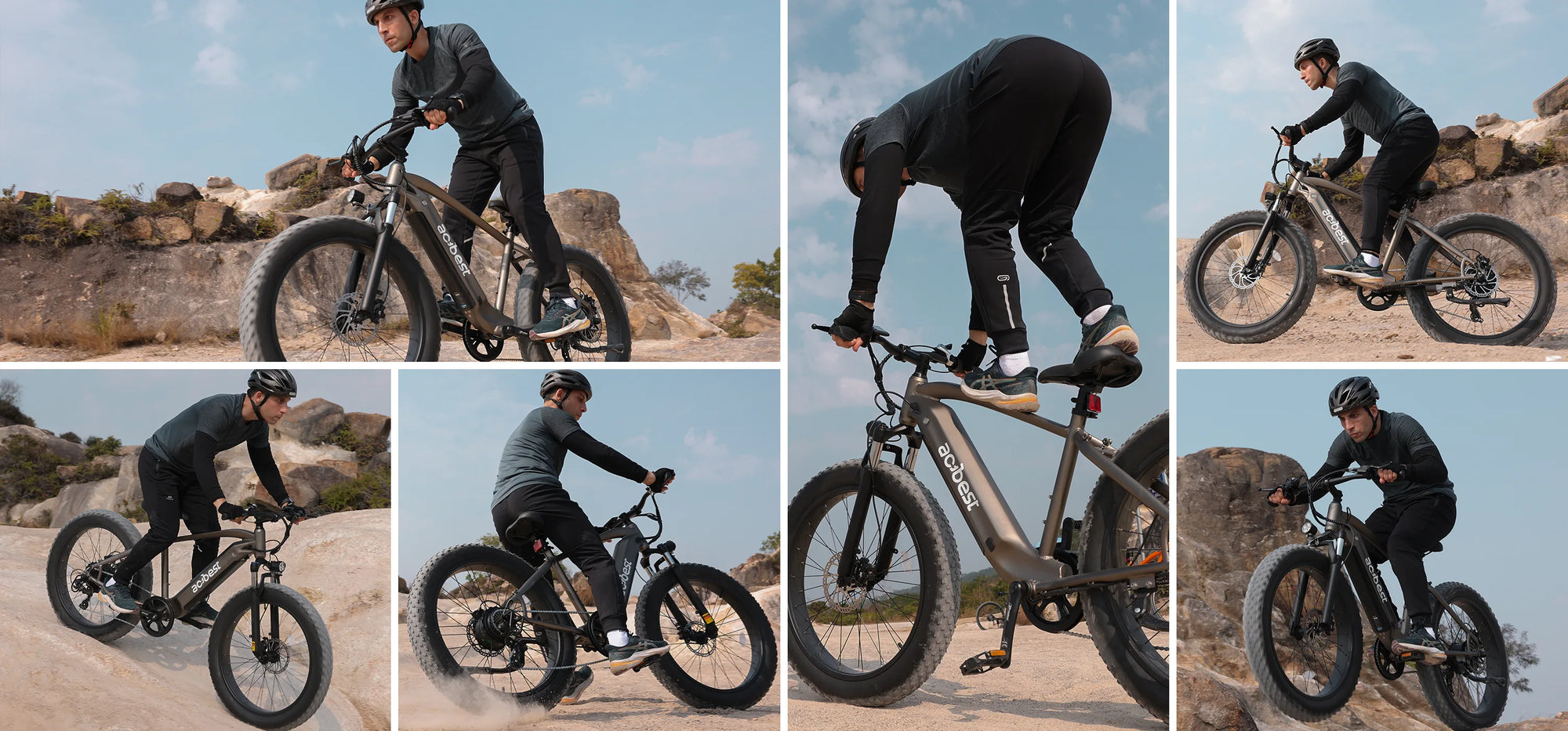Unlock the Secrets: Discover the Ultimate E-Mountain Bikes That Will Transform Your Trails!
E-mountain biking is rapidly gaining traction among outdoor enthusiasts, combining the thrill of traditional mountain biking with the advantages of electric assistance. For those who have yet to experience it, e-mountain bikes are equipped with electric motors that provide an extra boost, making it easier to tackle challenging terrains and steep inclines. This innovation allows riders of all skill levels to enjoy the exhilarating experience of mountain biking without the daunting physical demands. In this article, we aim to explore and compare specialized e-mountain bike models, helping you make an informed decision when considering your next purchase. Whether you're an experienced rider looking to enhance your adventures or a beginner seeking a more accessible way to enjoy the trails, this guide will illuminate the key features and models that should be on your radar.

Understanding E-Mountain Bikes
E-mountain bikes, often referred to as e-MTBs, are designed specifically for off-road cycling, integrating the convenience of electric propulsion with the ruggedness of traditional mountain bikes. The key features that set e-MTBs apart include electric motors that provide varying levels of pedal assist, allowing riders to conquer steep climbs and challenging trails with less effort. Unlike conventional mountain bikes, which rely solely on human power, e-MTBs enable longer rides and greater exploration, effectively broadening the horizons for many cyclists. Not only do they offer enhanced performance, but they also promote inclusivity, making mountain biking accessible to a wider audience. Whether you're facing a grueling uphill battle or zipping through winding trails, e-MTBs deliver a balanced blend of power and agility, ensuring that every ride is enjoyable.
Key Features to Consider When Choosing an E-Mountain Bike
When selecting the right e-mountain bike, several essential features should be evaluated to ensure you make a suitable choice for your riding style and needs. First and foremost, battery life is crucial; a higher capacity battery allows for longer rides without the fear of running out of power. Motor power is equally important, as more powerful motors can offer better assistance on steep climbs and challenging terrain. Additionally, the frame material plays a significant role in the bike's overall weight and durability; aluminum and carbon fiber are popular options for their strength-to-weight ratios. Suspension systems also deserve attention, as they determine how well the bike absorbs shocks and provides a smooth ride over rough surfaces. Ultimately, understanding these features will empower you to choose an e-mountain bike that aligns perfectly with your adventurous spirit.
Comparing Popular Specialized E-Mountain Bike Models
As you delve into the world of e-mountain bikes, you'll find a variety of models each offering unique advantages. For instance, some models excel in power, making them ideal for steep climbs and long-distance rides, while others focus on agility and lightweight design, enhancing maneuverability on technical trails. Riders should consider how often they plan to use the bike and the types of trails they wish to explore. Many models also come with varying levels of pedal assist, which can dramatically affect the riding experience. A bike with multiple assist settings allows for a customizable experience, adapting to different terrains and rider preferences. Moreover, the quality of components, such as brakes and gears, varies across models, impacting overall performance and maintenance. The right choice ultimately hinges on understanding which features align with your riding goals and preferences.
Performance Comparisons
When it comes to performance, e-mountain bikes can significantly differ in speed, climbing ability, and trail handling. Some models are engineered to offer rapid acceleration, making them ideal for competitive riders who thrive on speed. Others prioritize stability and control, particularly on technical descents where handling is crucial. A personal experience comes to mind when a friend of mine took two different models for a spin; one excelled on steep climbs, allowing him to reach the summit effortlessly, while the other provided a thrilling descent, carving through tight corners with precision. Understanding these performance nuances can help you select a bike that matches your riding style, whether you prefer exhilarating speed or a more controlled, stable ride.
Design and Comfort
The design elements of e-mountain bikes play a vital role in rider comfort and handling. Geometry is a key factor; bikes with a more relaxed geometry can enhance comfort during long rides, while those with a sportier design may improve responsiveness and speed. Weight distribution also affects how the bike handles on different terrains. For instance, a well-balanced e-MTB can provide better control on descents and improve confidence for riders tackling rough trails. A colleague shared that after switching to a bike with improved geometry, their comfort level increased significantly, leading to longer and more enjoyable rides. Consideration of these design elements can ultimately enhance your riding experience and ensure that you can enjoy your adventures to the fullest.
Making an Informed E-Mountain Bike Choice
In conclusion, selecting the right e-mountain bike involves careful consideration of various factors, including performance characteristics, design, and key features such as battery life and motor power. As we've explored, the right bike can transform your experience on the trails, allowing you to tackle challenges with ease and enjoy the great outdoors like never before. By understanding the distinctions between various models and what each has to offer, you will be better equipped to make a choice that aligns with your individual needs and preferences. So, before making your purchase, take the time to analyze these factors and envision the adventures that await you on your new e-mountain bike!










تعليقات